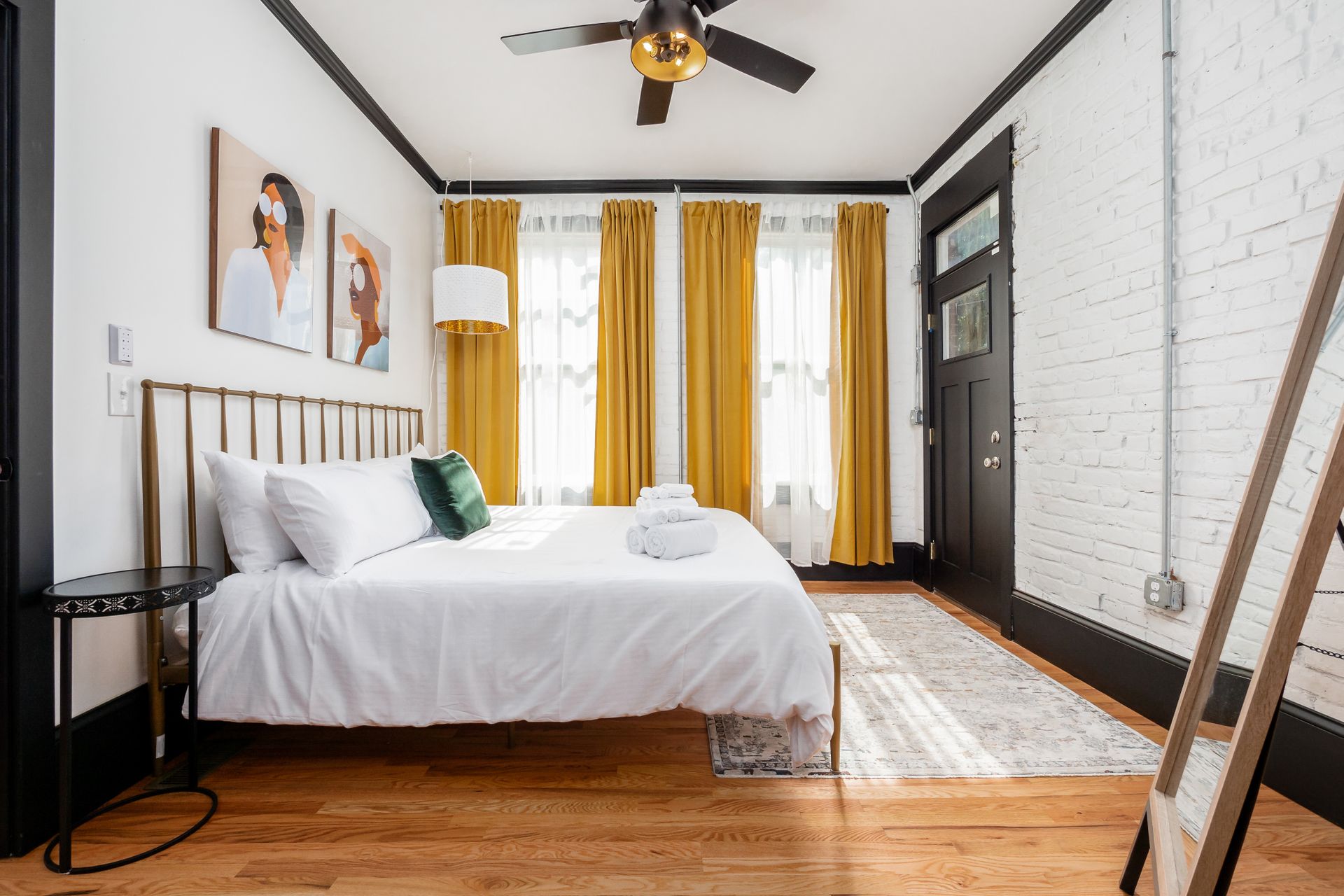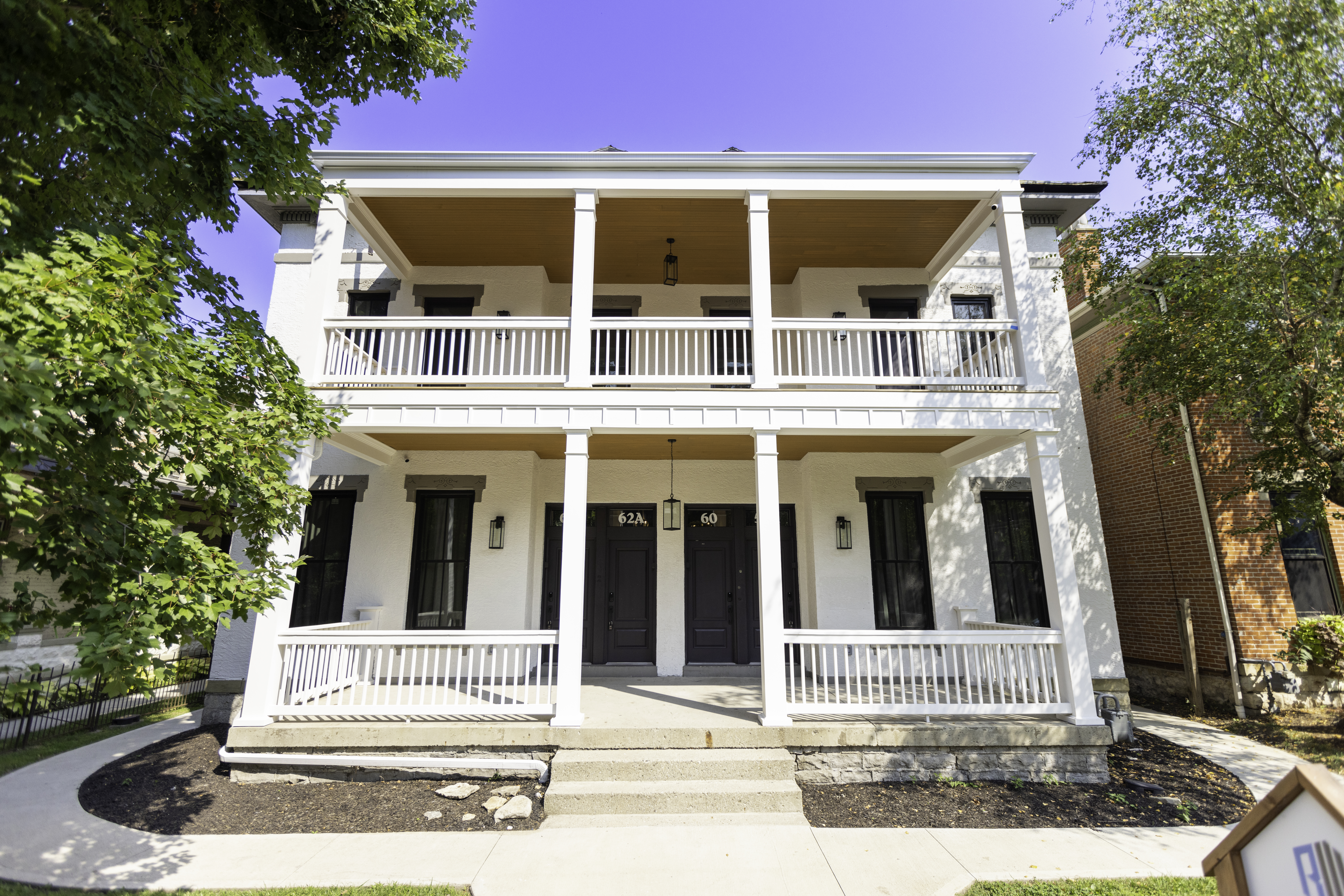
You’re probably thinking Airbnb’s Aircover has you fully covered, right? As someone who has been in the short-term rental business for a long time, I have seen far too many hosts find out the hard way that it’s not enough. When they file a claim, Airbnb might just say “no.”
Let’s look at what you really need to know about short-term rental insurance so you do not get left high and dry. Many hosts don’t realize that Aircover is not an insurance policy in your name. I want you to know you need a safety net that has your name on it.
We’ve rounded up all of our Airbnb Hosting Must-Haves right here in our Amazon Store. Click here to grab everything you need to curate your property and start earning 5-star reviews.
5 Critical Things About Short-Term Rental Insurance
- 5 Critical Things About Short-Term Rental Insurance
- 1. Aircover Isn’t Real Insurance
- 2. Number One Claim: Water, Wind & Structural
- 3. Amenities Increase Bookings, But Also Risks
- 4. Review Your Photos For Safety Hazards
- 5. Protect Your Business and Revenue
- 6. What Kind Of Short-Term Rental Insurance Is Available?
- 7. Commercial Short-Term Rental Insurance Investment
- 8. Different from Car Rental Insurance?
- FAQ Section
- Conclusion
5 Critical Things About Short-Term Rental Insurance
Too many hosts discover too late that Aircover isn’t going to cover their claim. What can you do to keep yourself safe and avoid costly mistakes?
1. Aircover Isn’t Real Insurance
Aircover can sometimes help with a situation. I’m glad they offer it as part of their offering to attract hosts. It may seem appealing at first glance.
But don’t be shocked when they ask for what feels like endless amounts of proof, and then still deny your claim. The real problem is when hosts rely on Aircover and do not get their own insurance coverage to actually protect the business they are doing at their property. They’re stuck if Aircover denies the claim.
Guest-caused damages are not the only thing to watch out for. Believe it or not, there are bigger risks. What about those other damages that Airbnb won’t touch? That’s where your own commercial insurance policy for your property is critical. This policy should cover your small business because, after all, you’re exchanging money for a stay.
If you are doing this full-time, the peace of mind will be invaluable. I hear so many hosts say their biggest fear is parties or damages caused by guests. Those things aren’t impossible, but water damage, wind damage, and structural damage are far more common.
Your normal homeowner’s insurance isn’t going to cover you if you are operating a short-term rental. The minute you mention a paying guest, they might deny the claim. You need short-term rental coverage to protect your investment.
Also, landlord insurance is not the same. Be certain you have short-term rental insurance that covers wind, water, and structural issues. It must protect you from lost business too.
Make a list now. Then, call your insurance agent or licensed insurance producer. Be sure that you are covered for everything with the proper insurance.
2. Number One Claim: Water, Wind & Structural
According to insurance companies that deal with short-term rentals day in and day out, the biggest claims are from water, wind, and structural damage. Now, that can be a bit concerning but understanding the claims gives you a view on how to properly plan for a worst-case scenario.
This makes sense when you consider burst pipes and weather events, as well as aging structures. Don’t let it become your number one headache. You need to cover property from these issues.
3. Amenities Increase Bookings, But Also Risks
It feels like there’s an internal contest between hosts to see who can offer the most insane amenities. While a zip line sounds awesome in theory, you have to consider whether you’ll be covered if someone gets hurt. Before investing too much, think it through, otherwise, you will have a rude awakening.
What if a guest riding one of your free bikes gets injured? Kayaks? Hot tubs? A swimming pool? All of these things can bring in more guests to your property. They all increase risk, though, and some policies might require signed waivers.
Ever notice that waivers are commonplace? If you head to a resort or the beach and rent something, there is almost always a waiver. Insurance often requires it.
Check with your provider before adding that fun amenity. Will it increase your premium? Is a waiver needed? Think it all through to make sure you have liability coverage.
Most likely, if an amenity isn’t explicitly listed on your rental policy, it is not covered. Call your insurance company and ask. Make sure they know you’re doing short-term rental activity and detail all the amenities you offer. It’s important to disclose if you offer kayaks or have a swimming pool so you have the proper insurance.
You want them to work with you to protect against liability exposure. It might not just be a signed waiver, but also safety signs, or the proper equipment.
4. Review Your Photos For Safety Hazards
Consider having your insurance provider look through your listing. What do they see in the photos?
Are your photos leaving anything out? An experienced company can spot potential safety hazards, such as a missing handrail.
The idea isn’t to hide from your insurance company. You want their support if the worst happens.
That level of detail from an experienced partner will give you the insight to increase your overall revenue as well as manage and be protected from known risks in the short-term rental space. Don’t get too cute when you might leave off relevant safety concerns.
By the way, this also includes activities offsite. This is called vicarious liability and can be included in a short-term rental insurance policy.
Even a recommendation can cause issues. Saying “check out the beautiful park on the street” could cause problems if they get bit by someone’s dog. You told them to go to the park. Be careful when you market experiences off your property as this could increase liability exposure.
5. Protect Your Business and Revenue
Let’s say you have water or fire damage. Repairs will be needed before anyone can stay there again.
This means cancelled reservations and lost revenue. However, your mortgage isn’t going anywhere, which is where rental coverage can help.
You must continue to pay that mortgage, even when there isn’t rental income coming in. So, make sure your rental insurance policy helps with the lost revenue during repairs. Look for the loss of income coverage.
Consider your busiest month. What if something happens then? Will you be able to cover it if you can’t welcome guests? Have that level of lost revenue coverage on your rental policy to avoid any financial advisor issues.
Loss of income protection makes short-term rental insurance about so much more than damages. It’s about the future and being able to recover what you lose while repairs are being made. That is what creates a true partnership that takes a longer term approach, so cover property for damages and loss of income.
6. What Kind Of Short-Term Rental Insurance Is Available?
While I gave you all of the background of what the short-term rental insurance is for, I figured that you may have found your way here as a beginner to understand it and now get short-term rental insurance quotes of your own to protect you for all of your investment risk. The rental insurance cost is different from standard homeowner’s.
You will want to review the quotes closely and understand how each and every protection point would benefit you with proper due diligence. Remember, many people who get into short-term rentals will quickly want to skip over what they do not know and should seek proper insurance.
Some people may find this boring or tedious, but as mentioned, short-term rentals and their relevant coverages may not be as appealing as running it as a hospitality company or decorating your rental unit to look immaculate. This however must be an element that is seriously and actively thought through when approaching what level of liability that you are carrying for this investment type. You should consider rental coverage to reduce that risk.
7. Commercial Short-Term Rental Insurance Investment
Get ready for sticker shock. When you see the quotes for commercial short-term rental insurance, know that it’s more than homeowner’s or landlord insurance. You’re now protecting your small business.
Think of it as a key element of protecting you, even from unknown variables as well. You will need rental coverage.
Do not try to skimp on getting the proper insurance. A lack of proper coverage could be devastating and leave you paying for it forever if a guest injures themselves.
We take insurance seriously in our short-term rental business, and that means using providers we trust. If you’re looking for the exact tools and resources we rely on—from proper short-term rental insurance to our booking platforms and pricing software—you’ll find them all on our Trusted Tools page. Whether you’re just getting started or looking to upgrade your systems, this curated list has been a game-changer for protecting and streamlining our operations.
8. Different from Car Rental Insurance?
It is completely different than something such as rental insurance used for cars. There is a difference that would need to be understood.
FAQ Section
Here are some frequently asked questions regarding short-term rental insurance.
| Question | Answer |
|---|---|
| What is short-term rental insurance? | Short-term rental insurance is a type of insurance designed to protect property owners who rent out their homes or apartments on a short-term basis, typically through platforms like Airbnb or VRBO. It provides coverage beyond what standard homeowners insurance offers, addressing the risks associated with having paying guests. |
| Why do I need short-term rental insurance? | Standard homeowners insurance policies often exclude or limit coverage for business activities, such as renting out your property. Short-term rental insurance fills this gap by covering property damage, liability claims, loss of rental income, and other risks unique to short-term rentals. |
| What does short-term rental insurance cover? | A comprehensive short-term rental insurance policy typically covers: Property damage caused by guests Liability claims for guest injuries Loss of rental income due to covered damages Theft and vandalism Additional coverage for amenities like pools and hot tubs |
| How much does short-term rental insurance cost? | The cost of short-term rental insurance varies depending on several factors, including: Location of the property Value of the property Coverage limits Amenities offered Claims history It is advisable to get quotes from multiple insurance providers to find a policy that fits your needs and budget. |
| Is Airbnb’s AirCover enough? | While Airbnb’s AirCover provides some protection for hosts, it is not a substitute for comprehensive short-term rental insurance. AirCover has limitations and may not cover all types of damages or liability claims. Relying solely on AirCover can leave you vulnerable to financial losses. |
| What if I only rent out my property occasionally? | Even if you only rent out your property occasionally, you still need short-term rental insurance. Standard homeowners insurance may not cover incidents that occur while you have paying guests. A dedicated short-term rental policy provides the necessary protection, regardless of how often you rent out your property. |
| Where can I get short-term rental insurance? | You can get short-term rental insurance from specialized insurance providers that cater to the short-term rental market. Some major insurance companies also offer short-term rental policies. Working with an independent insurance agent can help you compare options and find the best coverage for your needs. |
STR Insurance: A Necessity
Short-term rentals can be a lucrative business. They can also expose you to risks that standard homeowner’s insurance doesn’t cover. Commercial short-term rental insurance is a must to make sure you are running responsibly to avoid known safety hazards as well as preparing for things like short-term rental insurance liability. Understand the risks so that your growing and expanding short-term rental portfolio brings in revenue to continue bringing in over one and a half million year over year.
And while you’re protecting your property, don’t forget to protect your profits too. One of the smartest moves we made was implementing a clear and thoughtful pet fee policy. Welcoming pets can be a huge booking boost—but only if done right. Want to make more money and keep things clean? Download our FREE Pet-Friendly Hosting Checklist and read our blog post to learn how to maximize earnings while setting expectations with guests and their furry companions.
Calling All Hosts: The Hosting Handbook
If you loved this post we invite you to check out our one-stop-shop solution for hosts everywhere —the Hosting Handbook! While you can download all the easy to consume, step-by-step tips we use in our own hosting business and create the ultimate “book” the Hosting Handbook is so much more than that! If you’ve consumed or content for years (or just met us!) this is the reference guide for all the amazing and tactical tips we have for running a profitable and, more importantly hospitable, short-term rental. How do we price for pets? How do we fold our towels? What sheets do we buy? How do I purchase a short-term rental? All these questions (and more!) can be answered in the Hosting Handbook! Check it out now!
Happy Hosting!



show comments
HIDE comments